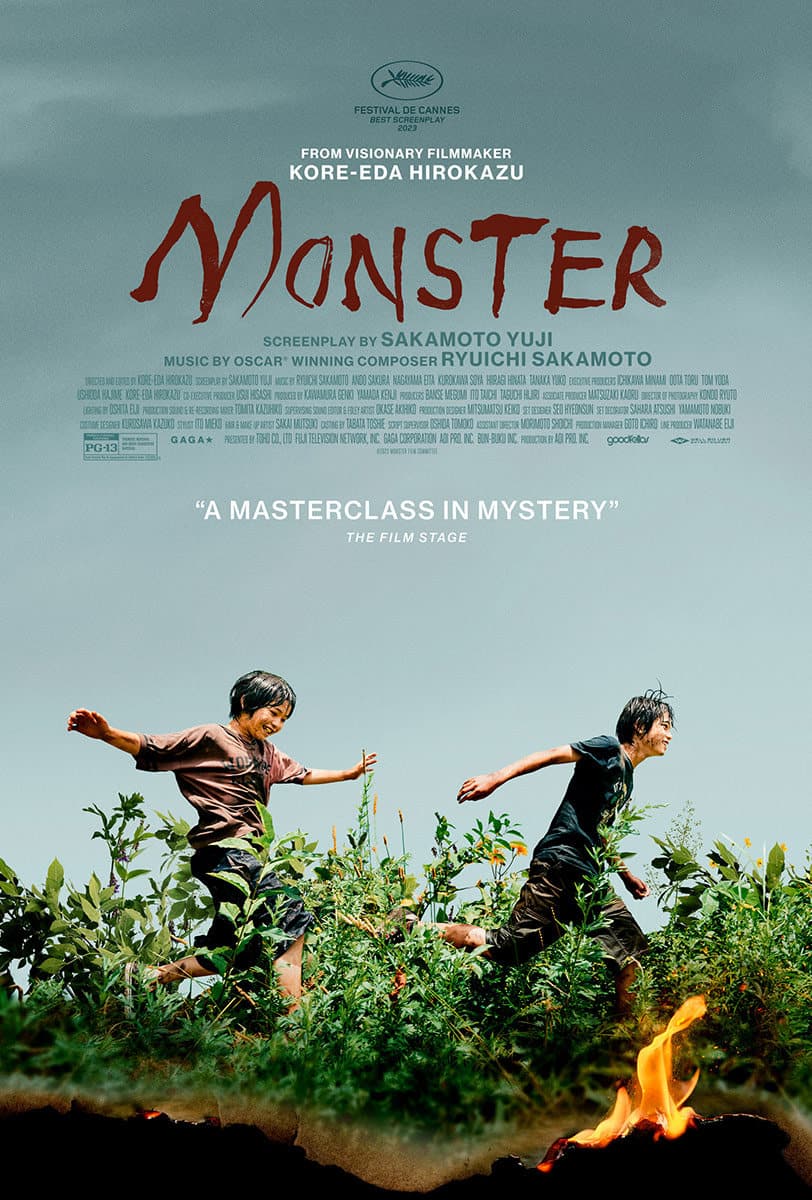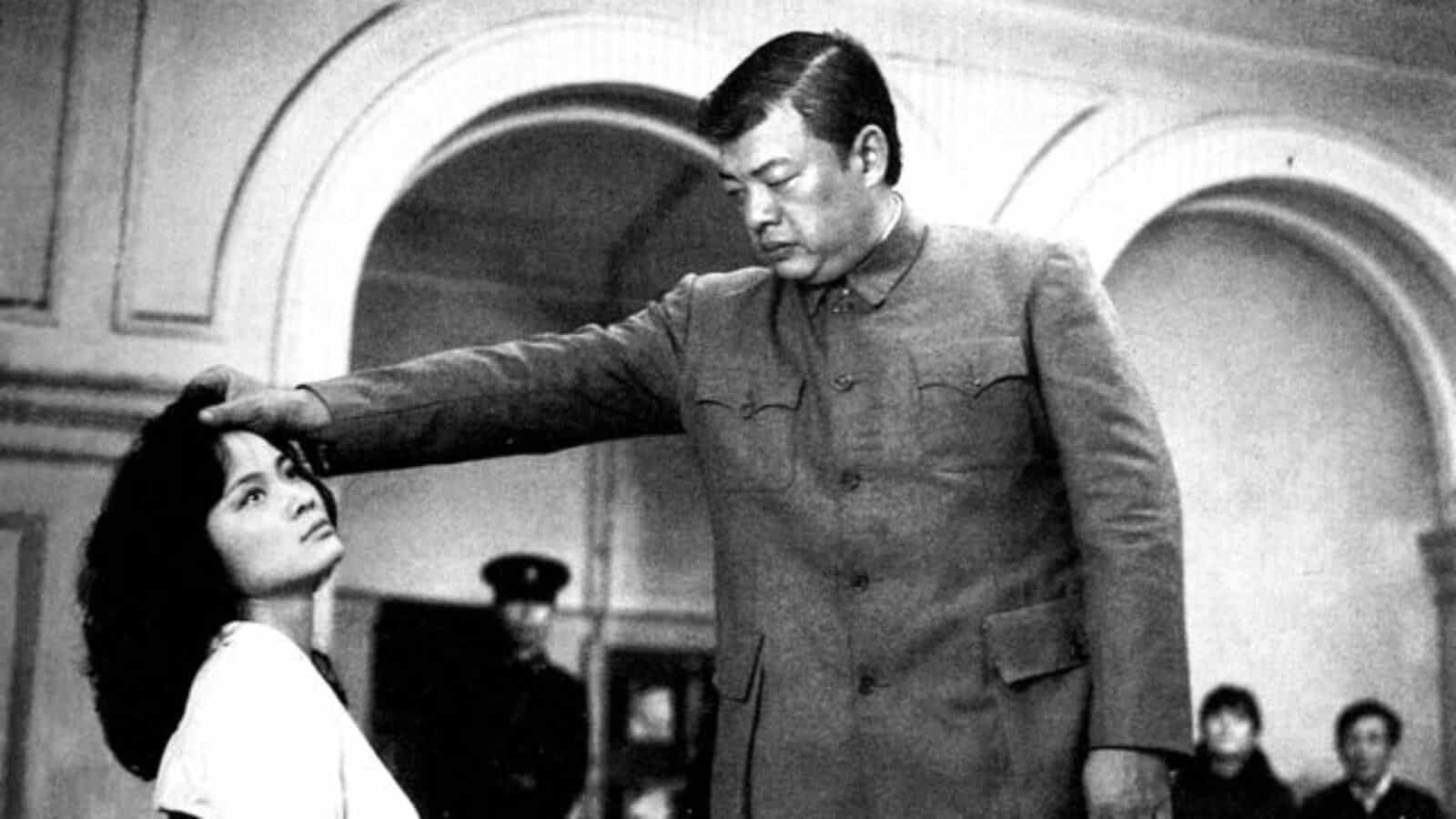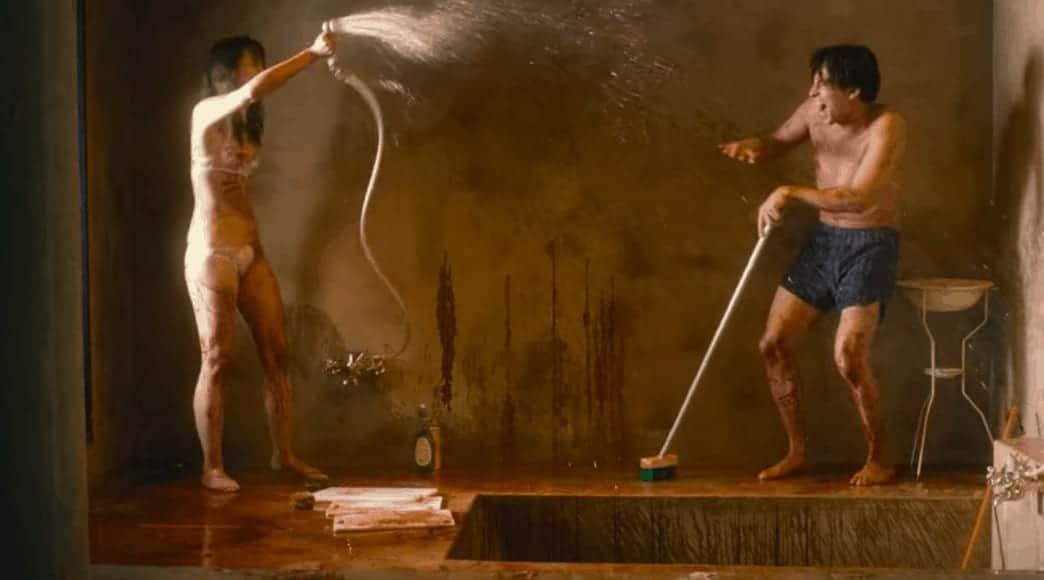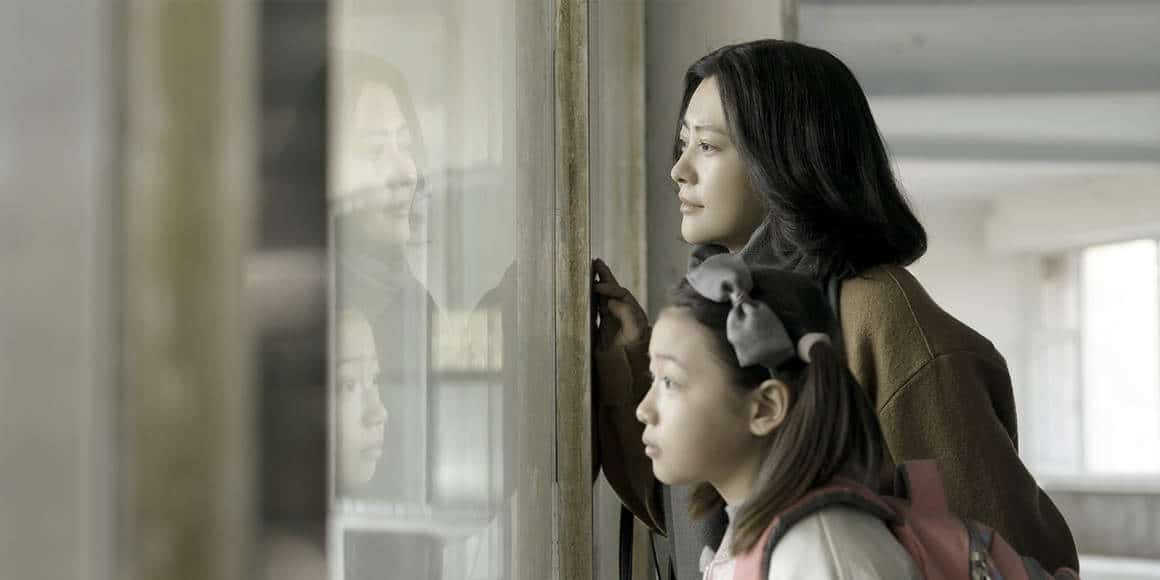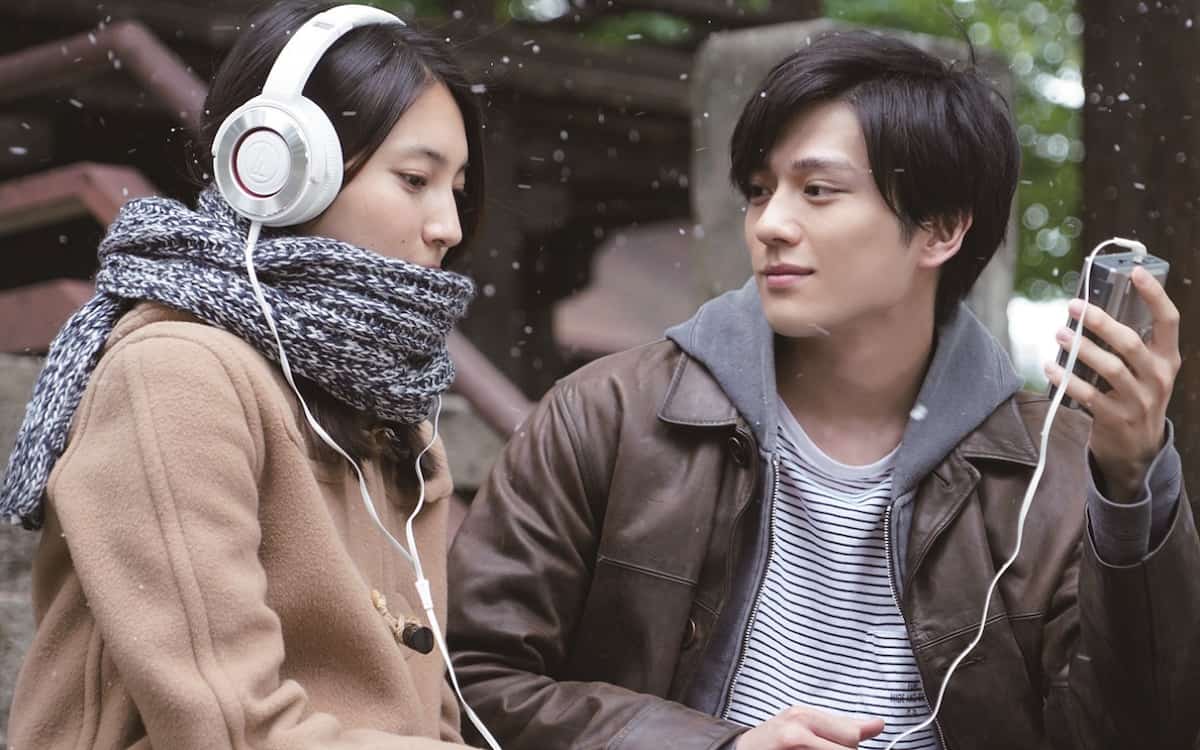Hirokazu Koreeda returns to Japan for his latest feature, “Monster,” another outstanding entry in the director's already impressive filmography. For “Monster,” Koreeda collaborated with screenwriter Yuji Sakamoto, who wrote the screenplay, and music composer Ryuichi Sakamoto, who produced his final film score before passing away. As such, a dedication to the memory of Sakamoto is included. Upon making its world premiere at the 76th Cannes Film Festival, competing for the Palme d'Or, the movie was met with an overwhelmingly positive reception, winning the Best Screenplay award and being honored with the Queer Palm. Its theatrical run has also been met with acclaim.
Monster is available from Wellgo USA
Regarding the story, single mother Saori Mugino grows concerned for her son Minato when she notices disturbing changes in his behavior. Things only become more concerning as time progresses. Upon learning that schoolteacher Michitoshi Hori is responsible for her child's behavioral shifts, Saori confronts him and the school's principal, demanding answers. However, the truth is gradually revealed through the perspectives of the mother, the teacher, and the child.
The screenplay of “Monster” is simply terrific. There's plenty to analyze, right down to the presentation of the story, conveyed in a similar vein to Akira Kurosawa's film “Rashomon.” The major difference is that the movie shows conflicting accounts surrounding the same incident. Here, the audience witnesses the situations within the mystery unfold through shifting perspectives, each revealing additional information and secrets, adding to an already intriguing plot. Hirokazu Koreeda cleverly uses this storytelling format to develop the characters and draw in viewers, setting up a compelling mystery that is full of surprises and thematically rich.
Check also this interview
Morality is a key element, with moments of characters displaying pure humanity while others show a complete lack of such. Viewers get to reflect on how humans handle morals at different stages, as demonstrated by the shifts between the adults and the children featured in the movie. Additionally, the concept of how we initially perceive what's witnessed and the initial conclusions, playing into who and what a monster is, is also present here. Figuratively speaking, the so-called “monster” of the film can be interpreted as perception itself and how preconceived notions can ultimately alienate one another even if the truths reveal a different narrative entirely. Greatly highlighted along with this are the inner and outer consequences of keeping secrets along with being honest not only with others but with ourselves as well. However, “Monster” is more than just an exploration of good and evil; it presents how complex reality is, whether it be how and why things happen and how humans deal with those moments while reflecting on their identities.
Dramatically, “Monster” succeeds in droves thanks to its subtle execution and how it tackles various sensitive topics. Firstly, the movie boldly confronts and raises awareness of harrowing issues, including child abuse, mental health, bullying, fractured families, and the flaws within the school system. Themes of life, death, and rebirth are brought to the audiences' attention to allow for reflectance and how people handle past regrets and acceptance moving forward. Then there's the movie's compassionate and respectful approach to the LGBTQ themes with the intense friendship between Minato Mugino and Yori Hoshikawa, who, through their emotional journeys of childhood self-discovery and reflection, come to terms with who they are and their feelings for one another. In the hands of a lesser director or contrived script, the drama of the film and presented themes could have failed miserably, yet here, everything clicks thanks to an outstanding direction and a writing full of subtlety.
Brilliant performances help effectively convey the drama throughout the movie's gradual revelations. Sakura Ando does a great job as Saori Mugino, capturing the difficult realities of a single mother trying to raise and advocate for her child while holding together her intense feelings through all that is happening. Eita Nagayama is tasked with the challenging role of schoolteacher Michitoshi Hori, initially seeming cold and despicable when confronted with troubling allegations, yet surprises the audience when the truth comes to light, which Nagayama nails wonderfully. Similarly full of surprises is the school principal Makiko Fushimi, whom Yuko Tanaka portrays impressively. However, the two child actors are the ones who carry many of the movie's most powerful moments. Soya Kurokawa and Hinata Hiiragi are both excellent in their respective roles as Minato Mugino and Yori Hoshikawa, who go through their journey of childhood self-discovery. Their growing bond is beautiful and respectfully portrayed, as the audience witnesses their secrets slowly unfolding while they come to terms with their identities and personal feelings.
It would be a disservice to overlook the technical brilliance of “Monster.” Ryuto Kondo's beautiful cinematography helps capture the calming, immersive atmosphere for which Hirokazu Koreeda is known. He continues to prove his mastery of integrating the world as a prominent character in the story, emphasizing locations and weather changes. There's also plenty of subtle attention to detail sprinkled throughout that hints at the visual and auditory truths unfolding, further tightened by spot-on editing. Ryuichi Sakamoto's music score is beautiful and particularly bittersweet, and considering this was his last score, an impressive swan song.
Heartbreaking yet also beautiful, “Monster” is a wonderful film. Hirokazu Koreeda elegantly weaves together an emotionally overwhelming and subtly executed narrative. A compelling mystery is established and, through terrific storytelling, gradually reveals its truths through the various perspectives of the characters and proceeds to further immerse with its thought-provoking themes and compassionate handling of its subject matter. Even after its revelations come to light, audiences will remain entranced by the feature's numerous layers of depth.



